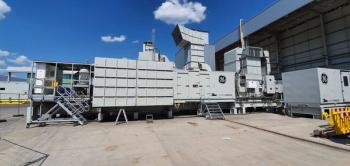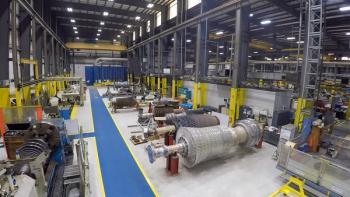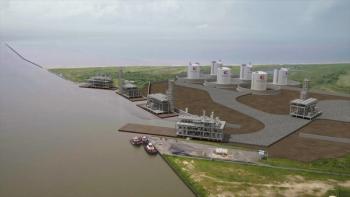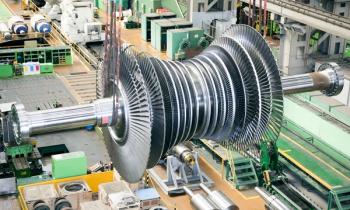
What else is there in the natural gas supplied to combustion turbines
Pipeline quality gas fuels are usually clean and dry, but there are occasions when fuels contain water, the presence of which can be problematic: Free water in the presence of hydrogen sulfide or carbon dioxide can form acids which can be highly corrosive to the fuel system and associated pipework. Water may contain undesirable water-soluble contaminants. Impacts dew point (water dew point), hence supply temperature will be higher than for the equivalent dry gas.
The presence of higher hydrocarbon species impacts the dew point, and hence the supply temperature. Higher hydrocarbon liquids, or condensate, when passed into the combustor, can combust in an uncontrolled manner: condensate is un-metered; results in uncontrolled combustion detrimental effect on operation, safety; can result in both combustion hardware damage or failure, as well as damage to downstream hot gas path turbine components.
The temperature adjustment of fuels also has some additional considerations: Allows some richer fuels to be supplied at a temperature beyond that required for dew point control. Trace heating and lagging of the gas supply pipework and fuel system would be required.
Water is one contaminant already discussed, but there are other contaminants that are often met and need to be considered
Carbon Dioxide (CO2) CO2 can react in the presence of moisture producing a weak acid, but mostly it acts as a diluent reducing the heat content available in the fuel.
Hydrogen sulfide is highly toxic and can pose unique challenges to operators as well as in the operation of gas turbines. Besides specific health and safety requirements, H2S (also sulfur in liquid fuels) can combust producing SOx (SO2/SO3) emissions to atmosphere, which react in the presence of moisture resulting in weak acid production (acid rain). Where SOx legislation exists, treatment of the fuel at source to remove or lower H2S (or sulfur in liquid fuels) is necessary. In the presence of sodium, potassium or vanadium, such as found off-shore or in coastal environments, further assessment will be required as the reaction of these metals and their salts with sulfur results in the production of sodium and potassium sulfates or vanates which are highly corrosive to modern materials used in the hot gas path components, such as turbine nozzles and rotor blades.
These readily combust, but require special understanding before acceptance as a GT fuel. Both exacerbate combustor flame speed, and can result in flashback, where the flame velocity exceeds the local combustor velocities. This makes these types of fuels less suited for lean pre-mix type combustion systems. However, conventional diffusion flame combustion systems are more tolerant to such fuels, subject to full assessment and application of appropriate safety measures.
Newsletter
Power your knowledge with the latest in turbine technology, engineering advances, and energy solutions—subscribe to Turbomachinery International today.




